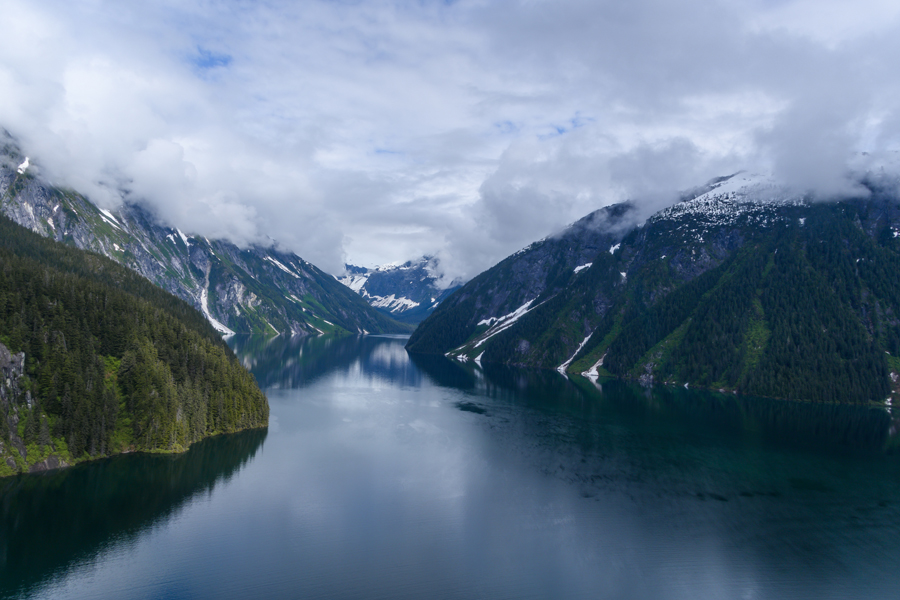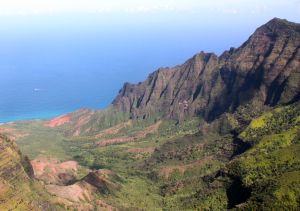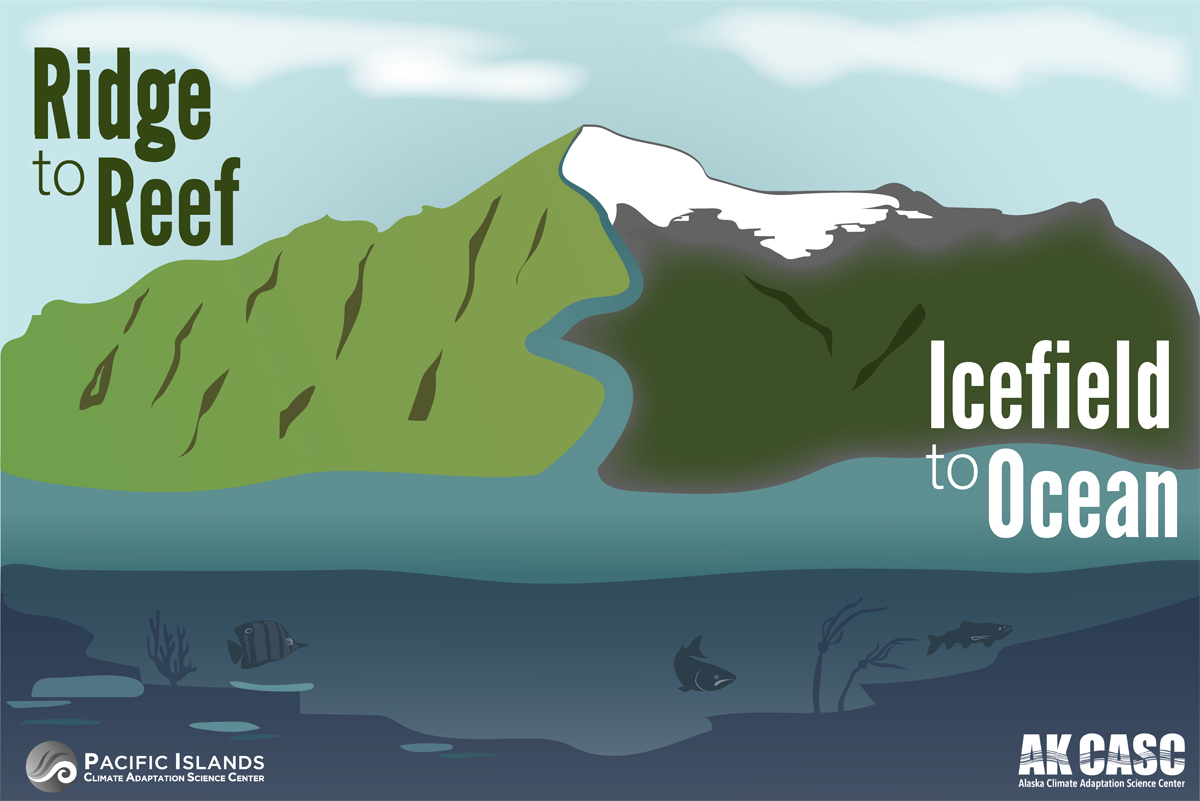Pacific Islands-Alaska CASC Collaboration
Parallels across the Pacific

Steep watersheds with dramatic environmental gradients are familiar features of both the Pacific Islands and Southeast Alaska, and both locations are experiencing significant alterations to watershed ecosystems and environmental processes due to climate change.
On high Pacific Islands, the holistic ecosystem view linking coastal watersheds to the ocean is dubbed “ridge to reef” (R2R) while Alaska terms it “icefield to ocean” (I2O). Regardless of terminology, both regions are experiencing impacts through terrestrial, freshwater, and nearshore marine ecosystems via the movement of water, energy, biota, and nutrients. Human communities in both regions depend on the cultural and ecosystem services provided by these linked land-to-coastal marine systems.

The Alaska and Pacific Islands Climate Adaptation Science Centers have joined forces to address these similar local challenges together, in a collaboration unique to the CASC network.
Scientists from each region are teaming up to perform cross-regional research, cultural engagement, and synthesis, developing a variety of forums for scientists, managers, and students to jointly explore these systems and exchange knowledge as a means to support community-based climate adaptation.


